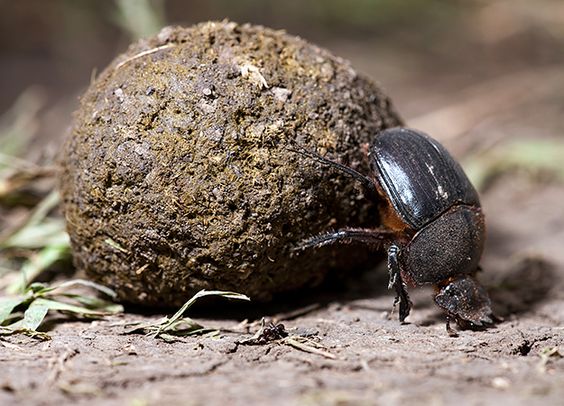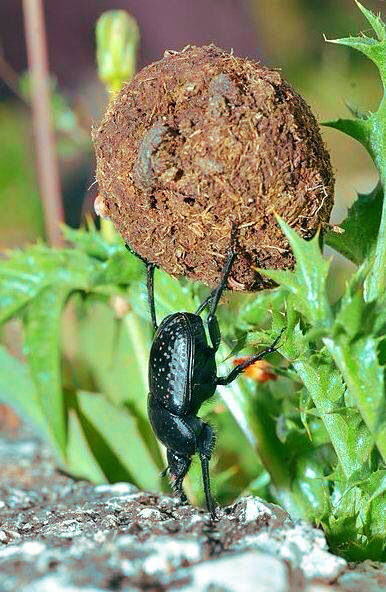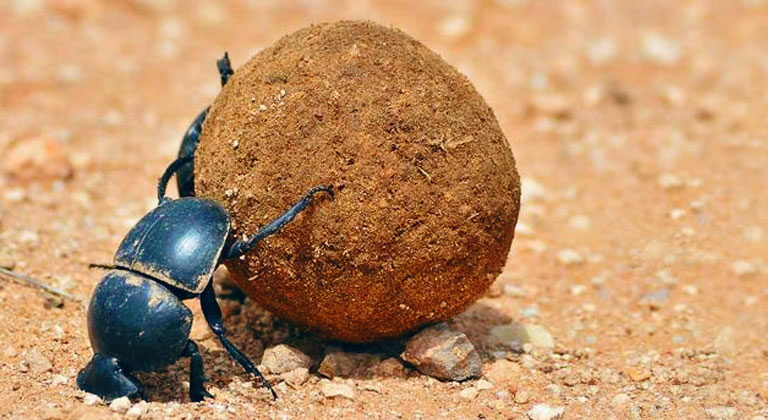Dung beetles are a group of insects that play a crucial role in many ecosystems around the world. These beetles have adapted to live in habitats ranging from tropical rainforests to arid deserts and can be found on every continent except Antarctica. Despite their small size, dung beetles are incredibly important for maintaining the health and productivity of these ecosystems.
One of the key roles that dung beetles play is in nutrient cycling. Animal dung is a rich source of nutrients, including nitrogen, phosphorus, and potassium, which are important for plant growth. However, if left on the surface of the soil, the nutrients in dung can be lost to erosion, leaching, or evaporation. This is where dung beetles come in. By burying and consuming dung, they help to speed up the decomposition process, which makes the nutrients in the dung more readily available to other organisms. This, in turn, can lead to healthier and more productive soils, which support a greater diversity of plant and animal life.
Dung beetles also play a critical role in soil health. By burying dung in the soil, they help to improve soil structure and nutrient content. This can enhance soil fertility, which is important for the growth and health of plants. In addition, by creating burrows in the soil, dung beetles can improve soil aeration and drainage, which can help to reduce erosion and runoff. This, in turn, can help to protect water quality and prevent soil degradation.
Another important role that dung beetles play is in pest control. Dung beetles help to control populations of pest insects, such as flies, by removing their breeding grounds (i.e., animal dung). This can reduce the spread of disease and other negative impacts associated with pest insects. In addition, dung beetles can also help to control the populations of other pest organisms, such as nematodes and parasitic worms, which can have negative impacts on livestock and other animals.
Dung beetles also play a role in regulating the global climate. When animal dung is left on the surface of the soil, it can produce large amounts of methane, a potent greenhouse gas. However, when dung is buried by dung beetles, it decomposes more slowly and produces less methane. This helps to reduce the greenhouse gas emissions associated with livestock production and other forms of animal waste.
Beyond their ecological importance, dung beetles also have cultural significance. In many human cultures throughout history, dung beetles have been revered as symbols of rebirth and regeneration. For example, in ancient Egypt, the dung beetle was associated with the god Khepri and was seen as a symbol of the sun’s daily renewal.
In conclusion, dung beetles are an incredibly important group of insects that play critical roles in many different ecosystems. They help to recycle nutrients, improve soil health, control pests, regulate the global climate, and even have cultural significance. Without dung beetles, the health and productivity of these ecosystems would be compromised, and the benefits that they provide would be lost. Therefore, it is important to recognize the importance of dung beetles and to work to protect and conserve their habitats.




